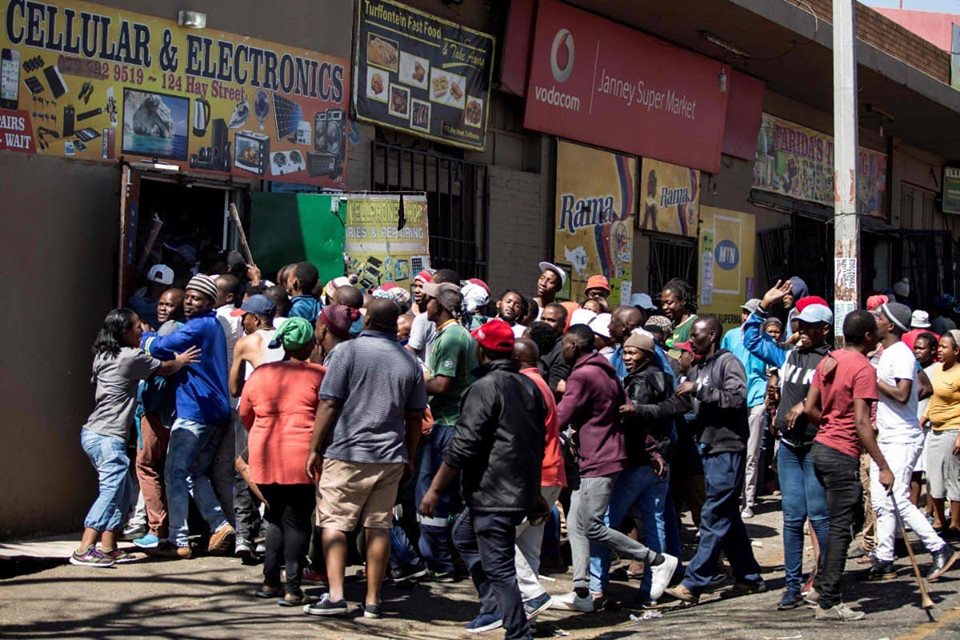There are no products in your shopping cart.
| 0 Items | £0.00 |


By Ayo Akinfe
(1) Over the last week, these xenophobic attacks in South Africa have dominated our political discourse. They say that even in ruins there is architecture, so I hope we have learnt a lot from these unfortunate attacks as a people
(2) For starters, the attacks confirm the age-old and time-attested theory that in times of economic hardship, people will lash out at their neighbours, making them scapegoats for their plight. These attacks are always irrational and illogical and we should never read more into them than the expression of frustration. South Africans are attacking every African in sight. Even former liberation struggle veterans
(3) What we are seeing in South Africa is no different from what we are witnessing with our own Fulanis in Nigeria. Impoverished, futureless and helpless, our Fulanis have taken their frustrations out on other Nigerians. Unfortunately, groups like Ipob have responded to this by calling for the dismemberment of Nigeria as if that will make the problems go away. It is naive and politically immature in the extreme to think that the redrawing of national borders creates wealth, abolishes poverty, creates jobs, or increases the size of GDP
(4) South Africa is a sovereign nation but yet, we are witnessing murderous pogroms against Nigerians there. If you balkanised Nigeria into say 36, 12, 10, six, four or three nations, you would still have such pogroms as long as poor economic conditions remain. Just as South African Zulu’s are attacking Igbo retailers, so too would Fulanis in an Arewa Republic attack Igbo retailers operating within their borders
(5) It is intellectual laziness to always try and attribute economic downturns to ethnicity and think that there is an ethnic solution to poverty. What I love about the last week is that these attacks have united all Nigerians. Even Boko Haram has threatened to go to South Africa to protect Igbo traders
(6) Yesterday, President Cyril Ramaphosa finally spoke about the attacks condemning them. However, he has not gone far enough as he has not told us what measures he will put in place to prevent any reoccurrence and has not outlined any punitive measures for culprits. I would have expected him to pass new laws creating the specific offence of xenophobic violence
(7) Those of you who are veterans of South Africa’s liberation struggle will remember that in the 1980s, Mongasuthu Buthelezi refused to allow the Zulus join the armed struggle. His Inkatha Freedom Party did not join the United Democratic Front (UDF) but hey, the ANC never let it colour its judgement
(8) When Zulu migrant workers were attacking anti-apartheid activists, killing Xhosas, allying with the apartheid regime and murdering moderate Zulus who identified with the UDF, the ANC remained focused and resolute that it was building a united and multi-ethnic South Africa. At no stage did the ANC call for the dismemberment of South Africa into ethnic nation states, come out with any anti-Zulu rhetoric or allow its members to be divided along ethno-religious lines. Nigerians need to learn such discipline
(9) We now know that at least one of the attacks in Johannesburg was carried out by spear-wielding Zulu migrant workers. Historically, the Zulus have murdered more innocent Africans than Nigeria’s Fulanis but the rest of South Africa has never played to the gallery, taken the bait or fallen for the ethnic card. Nigerians need to learn from this. If South Africa can accommodate its Zulus and embrace them as brothers despite their past atrocities, Nigerians can do likewise with their Fulani brethren
(10) One good thing I expect to come out of all this mayhem is the beginning of the end of ethnicity and tribalism in Nigeria. This crisis has united us as few things have in the past and I hope we build on that. Samora Machel once said: “For the nation to grow, the tribe must die.” Historically, international conflicts have always united a people and fostered nation-building as everyone rallied behind the flag. Let us regard this setback as the start of a new beginning devoid of ethnic divisions among Nigerians